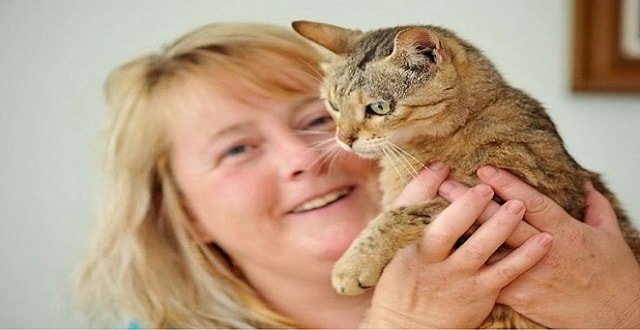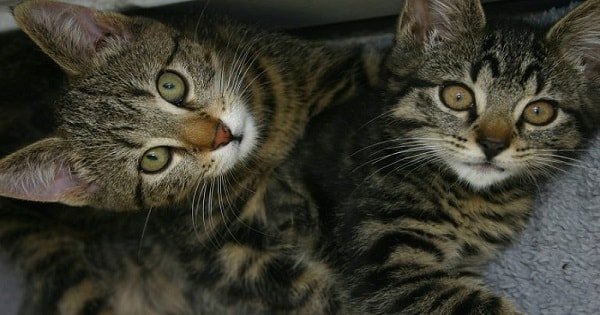Studies have shown that simply watching cat videos on the Internet can miraculously boost a person’s energy and create positive emotions —so it’s no surprise that actually owning a cat has a number of benefits. Here are a few
Owning a cat is better for the environment in general!
If you’re worried about your carbon footprint, it’s much better to own a cat than a dog. A 2009 study states that the resources needed to feed a dog over the course of its life create the same eco-footprint as that of a Land Cruiser. Meanwhile, cats —which eat much less in general and are more likely to eat fish than corn — or beef-flavored products — only have the approximate carbon footprint of a tiny hatchback.
You will attract a great significant other!
If you’re a single fella and you can’t seem to get a date, get a cat! A British poll found that 82 per cent of women agreed they are much more attracted to men who love animals. And while having a dog may do wonders for your dating life, a whopping 90 per cent of single women claim that men who own a cat are “nicer” than other guys. Noting that you own a cat on your dating profile could do wonders for the number of responses you get —but remember, a cat is a lifetime commitment, not just until you find a partner.
Cat owners are quite smart
A 2010 survey of British pet owners by the University of Bristol claims that people who owned cats were more likely to have college degrees than their dog loving counterparts. In 2014, a researcher from Wisconsin surveyed 600 college students and found that cat owners were actually much more intelligent as well. (But it’s probably not the cat itself that’s making the owner smarter: The researchers conducting the Bristol survey also stated that smarter people tend to work longer hours, and since cats require less attention than dogs, they are a better choice for the busy intellectual.)
You’ll have a much healthier heart
Owning any pet at all is good for your heart. Cats, in particular, lower your stress level — possibly since they don’t require quite as much effort as dogs — and lower the amount of anxiety in your life. Petting a cat has an extremely positive calming effect. One study even found that over a 10-year period cat owners were 30 per cent less likely to die of a heart attack or due to a stroke than non-cat owners (although this might just be because cat owners are more relaxed and have lower stress in general).
A cat will fulfill your need for companionship
The stereotype that says dogs are more affectionate than cats is just that: a stereotype. In fact, it turns out that cats can be just as good companions as dogs, and especially for women. An Austrian study which was conducted in 2003 found that having a cat in the house is the emotional equal of having a romantic partner. As well as initiating contact much of the time, studies have proved cats will remember kindness shown to them and return the favor later. But cats really do have the “upper paw” in these relationships. After thousands of years of domestication, cats have somehow learned how to make a half purr/half howl noise that sounds remarkably like a human baby’s cry. And since our brains are programmed to respond to our own children’s distress, it is almost impossible to ignore what a cat wants when it demands something like that.
They can tell you (and others!) much about your personality
Your choice of pet truly reveals something about your personality. While dog lovers tend to be the life of the party, cat owners are quieter and much more introverted. However, they score very highly when it comes to just how trustworthy they are and how much they trust other people. Cat owners are also less manipulative, more modest, and more humble.
You’ll sleep much better
Several studies and polls in the UK have discovered that people (especially women) prefer to sleep with their cats than with their human partners, and they even report sleeping much better with a cat than with a human. A recent study from the Mayo Clinic Center for Sleep Medicine indicates that they might just be onto something: 41 percent of the people involved in that study indicated that they slept better because of their pet, while only 20 per cent claimed that it led to disturbances.
Cat ownership also means fewer allergies
Sadly, it’s too late for you, but if you happen to have a child on the way, it might be time to get a cat. In 2002, the National Institutes of Health released the results of a study that found children under a year old who were exposed to a cat were less likely to develop allergies —and not only pet allergies. According to Marshall Plaut, M.D., chief of the allergic mechanisms section over at the National Institute of Allergy and Infectious Diseases, “high pet exposure early in life appears to protect against not only pet allergy but also other types of common allergies, such as allergy to dust mites, ragweed, and grass.” And while the cat parasite Toxoplasma gondii could be a threat to young children, experts say that by changing your cat’s litter box each and every day and keeping the animal indoors, you should be safe and allergy free!
Cats can quite literally save your life
Cats have quite a reputation for being aloof and not caring about their humans, but they have actually saved countless lives over the years. One cat, in particular, in the United Kingdom warns her human when he’s about to have an epileptic seizure, while a cat in Montana managed to wake up its humans when a gas pipe started leaking. Firefighters told the couple that the house could easily have very exploded if not for cat’s intervention.
One cat even went on to receive the highest medal available to military animals. Simon the cat happened to be onboard the HMS Amethyst, which was sailing up the Yangtze in 1949 when a shell hit the ship, killing several marines and severely injuring Simon. (The event marked the very beginning of the 101 day siege of the ship, which would later become known as the Yangtze Incident.) Simon was all fixed up, and despite being injured, performed his ship duty and started catching the rats that were threatening the ship’s food supply, as well as also providing moral support for the surviving sailors. Simon, unfortunately, died not long after the ship returned to the UK, but he was posthumously awarded the UK’s Dickin Medal, and was recognized as the animal Victoria Cross, for “behavior [of] the highest order, although the blast was capable of making a hole over a foot in diameter in a steel plate.”









